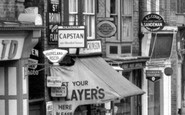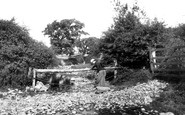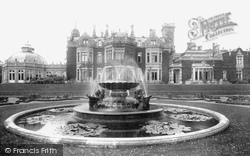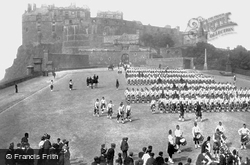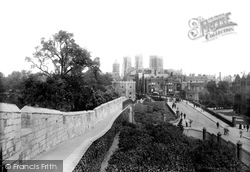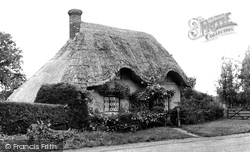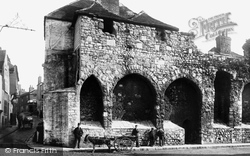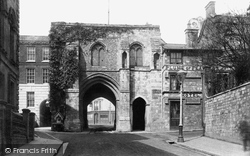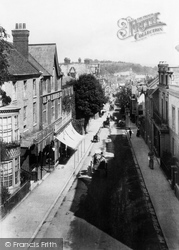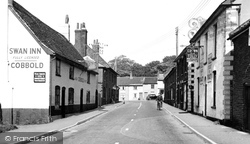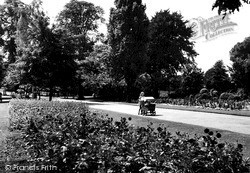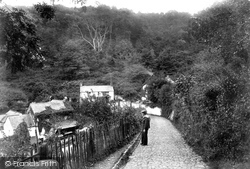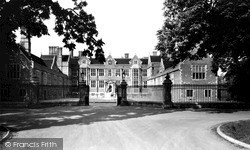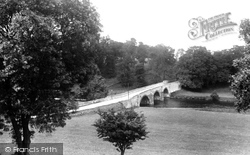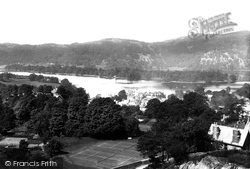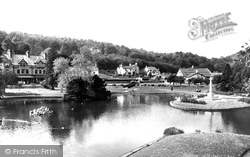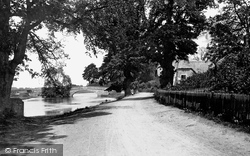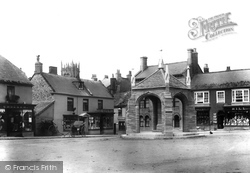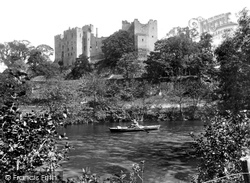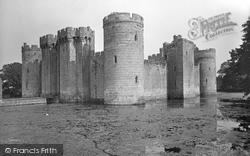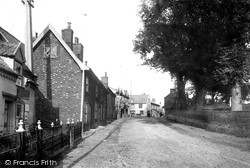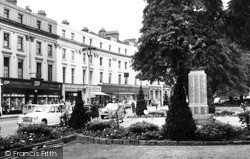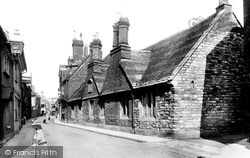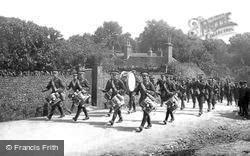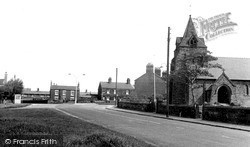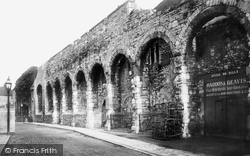Places
8 places found.
Those places high-lighted have photos. All locations may have maps, books and memories.
Photos
77 photos found. Showing results 301 to 77.
Maps
49 maps found.
Books
Sorry, no books were found that related to your search.
Memories
1,425 memories found. Showing results 151 to 160.
The Red Row Drift Hadston And Togston
I was brought up, on and off, in my childhood in Swarland Terrace, Red Row followed by Hadston, The Coutry Parks and Acklington. I moved away in 1974 to join the Army and only go back to visit my Mum once ...Read more
A memory of North Seaton in 1973 by
My Grandfathers Shop Jacksons
I suspect a lot of people might remember the shop. Seeing this photo brings a lot back. The shop is just out of shot to the right of the photo, though you can just make out the alleyway that led to the rear. I had my ...Read more
A memory of Redditch by
An Evacuee During Ww11
Packed off to Lostwithiel in the train from Paddington and found myself living in the Black Prince's Castle - Restormal. Well not quite, the farm on the Estate. I was baptised in St Winnow C.of E Church as part of our ...Read more
A memory of Lostwithiel in 1930 by
Tinshill Crescent
I was born in 1951 at Tinshill Crescent. I had an older brother Rodney (b 1946). I attended old Cookridge School (as previously described by Paul Leavett). It also had 2 prefab classrooms as well as the wooden hut. I remember ...Read more
A memory of Cookridge in 1956 by
Neolith
This was around 1968 and I lived in 21 Millfield Lane. I got auld Mrs Bradney's downstairs flat and me Nanna lived in No. 25, so nice and handy to pop in for a cuppa and a chat as me Ma 'n Da 'n two sisters had moved to Pegswood, Morpeth, ...Read more
A memory of Newburn in 1968 by
Browns Grocery Sweet Shop
1950s generally. My aunt Nora Brown was in charge of the sweet shop at Brown's. My uncle worked with his sisters Sis and Vi in the grocery store. Happy memories of free samples when I went to see my aunt. Happy memories ...Read more
A memory of Oxshott in 1951 by
Happy Days
This photo shows what was known as the black shed just above the first bridge on the river Gele, to the left of the photo was the school field at the bottom of Berth Glyd where I was born. If you go up Gypsy Lane you will come to an ...Read more
A memory of Abergele in 1950 by
The 1940s
I remember going to the local primary school at the top of Second Avenue from the age of 3. Mrs Dobson was head of the Infants School and Mr Perry was head of the Junior School. We slept in the hall in the early days of our school ...Read more
A memory of Fitzwilliam in 1940 by
The Birth Of Easington Colliery
Under the title "The Birth Of Easington Colliery", a 6,000 word article of mine has recently been published in the Journal of the North East Labour History Society,Volume 42 (2011). The article covers the ...Read more
A memory of Easington Colliery in 1900 by
Memories Of Aylesbury During The 60s And 70s
I was born in Buckingham Road in 1962 and lived in the same house (no.225) until I left for North Wales in 1985. I have many happy memories of living there, going to the Primary and Junior schools in ...Read more
A memory of Aylesbury by
Captions
876 captions found. Showing results 361 to 384.
The fountain, also by Thomas, was added the following year. The mansion was described by Pevsner as one which 'could hardly be drearier'.
The Edinburgh Castle we see today is, with a few additions, that built by the Earl of Morton following the siege of 1572. Here we see a battalion of the Black Watch parading on the castle esplanade.
This and the following three photos, although from the same vantage point, span a period of 60 years. They show many changes in some of the buildings and in the mode of transport.
Here the single line track divided left for Andover, right to follow the Test to Wherwell, Longparish, Hurstbourne Priors and then to the London main line.
Following the Norman invasion of 1066, Southampton became a key port, and the walls and other buildings are a permanent reminder of Southampton's wealth and prosperity in those days.
In the following pictures we see how it retains its importance as an historic and architectural feature as the city changes around it.
In the following pictures we see how it retains its importance as an historic and architectural feature as the city changes around it.
The 17th-century Cobbold Swan Inn opposite was saved from closure following a Save Our Swan campaign in 1995-1997. Beyond is the old post office, which still retains the original sign on the wall.
It was given this name following the visit of the Queen and Prince Philip to Stourbridge in 1957.
Construction of the three-mile road provided much-needed employment for local men in the depression that had followed the end of the Napoleonic Wars.
The hall changed hands many times over the following centuries before being almost rebuilt in the mid 19th century.
It was the first outlet for fun following the long winter after Christmas festivities. In 1906 it was recorded that thousands came from Burnley and Padiham besides Clitheroe.
The heavily wooded Belle Isle and Claiffe Heights bear witness to the zeal of Thomas Curwen in planting huge numbers of larch and other trees following his purchase of the land a century earlier.
The Grange Hotel was built following the coming of the railway.
The bridge over the River Avon at Ibsley, with its white water weir, wildfowl and waterside scenery, is a good place to halt if you are following that lovely river up from the sea.
Hardy drew a very accurate picture of Beaminster, and it is possible to follow in his heroine's footsteps.
Following their divorce, Katherine and Henry's daughter, Princess Mary, lived here for a time. We now know her as Bloody Mary.
Following the burning of Rye in 1377 and of Winchelsea in 1380, Bodiam Castle was built in 1385 because of the imminent threat of invasion by the French.
In the gabled building was either Harry Benstead or William Terry, saddlers, followed by the Swan, run by Mrs Mary Newberry.
Following a favourable report on the medicinal properties of the waters, a baths and hotel were built, and Leamington was on the spa trail.
The building was extensively altered in 1586 following the loss of the clergy when Elizabeth I came to the throne.
How many were to return alive by the end of the following year? Frensham is known for its ponds and its common – now Frensham Country Park.
serve as a school for the children of workers who came into the region to work on the Manchester Ship Canal, it was closed in 1902 after the canal was completed and these families all followed
Following the Norman invasion of 1066, Southampton became a key port, and the walls and other buildings are a permanent reminder of Southampton's wealth and prosperity in those days.
Places (8)
Photos (77)
Memories (1425)
Books (0)
Maps (49)

